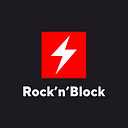Unlocking the Power of NFT Marketplace Development on Top Blockchains
The world of NFTs has seen explosive growth, revolutionizing digital ownership across art, collectibles, and gaming. To capitalize on this trend, choosing the right blockchain for NFT marketplace development is critical. In this comprehensive guide, we’ll delve into the top five blockchains: Ethereum, Avalanche, Arbitrum, Binance Smart Chain (BSC), and Flow, to help you unlock the full potential of NFT marketplace development.
Explore our recent article for complete overview of the Top 5 blockchains for NFT marketplace development, including how to build NFT marketplaces on Ethereum, Avalanche, Arbitrum, and Binance Smart Chain.
1. Building NFT Marketplace on Ethereum
Ethereum, often hailed as the trailblazer in blockchain technology, remains a dominant player in NFT marketplace development.
NFT marketplace development on Ethereum with it’s robust and established ecosystem provides several advantages:
- Security and Reliability
Ethereum’s battle-tested smart contract technology ensures the security and reliability necessary for NFT marketplace transactions. - Ecosystem and Interoperability
The Ethereum network boasts a massive developer community and extensive DeFi projects, creating a thriving environment for NFTs. It supports multiple NFT standards like ERC-721 and ERC-1155, simplifying integration into existing applications. - Liquidity
Ethereum’s widespread adoption ensures high liquidity, facilitating seamless NFT trading experiences.
2. NFT Marketplace Development on Avalanche
Avalanche, a rapidly growing blockchain, stands out as a promising choice for NFT marketplace development due to its scalability and cost-effectiveness.
Key advantages of creating your NFT marketplace on Avalanche include:
- Speed and Scalability
Avalanche’s consensus mechanism allows for lightning-fast transaction confirmations, ideal for high-frequency NFT trading. It can process thousands of transactions per second, ensuring a smooth user experience. - Cost-Efficiency
Low transaction fees on Avalanche make it an attractive option for NFT developers and users, especially when compared to Ethereum’s gas fees. - Ecosystem Growth
Avalanche’s ecosystem is expanding rapidly, with new projects and developers flocking to the platform. This growth provides ample opportunities for NFT marketplace integration and partnerships.
3. Creating NFT Marketplace on Arbitrum
Arbitrum, an Ethereum Layer 2 solution, offers an enticing platform for NFT marketplace development. Layer 2 solutions alleviate Ethereum’s congestion and high gas fees, making NFT transactions more affordable and efficient.
Advantages of choosing Arbitrum for NFT Marketplace development include:
- Ethereum Compatibility
Arbitrum maintains compatibility with Ethereum’s smart contracts and tools, allowing developers to seamlessly port existing NFT marketplaces to this Layer 2 solution. - Scalability
By moving transactions off the Ethereum mainnet, Arbitrum significantly reduces congestion, resulting in faster and cheaper NFT transactions. This scalability is a game-changer for NFT marketplace development. - Reduced Gas Fees
Users and developers benefit from dramatically lower gas fees on Arbitrum, making it an attractive choice for minting, buying, and selling NFTs.
4. NFT Marketplace Development on BNB Chain (BSC)
Binance Smart Chain (BSC) has gained prominence as a blockchain alternative for NFT marketplace development, offering cost-effective and speedy transactions.
Advantages of building an NFT marketplace on BSC include:
- Low Transaction Fees
BSC is known for its minimal transaction fees, making it an affordable option for NFT marketplace users and developers. - Fast Confirmation Times
Transactions on BSC are confirmed quickly, ensuring a smooth user experience, especially for NFT trading. - Binance Ecosystem
BSC is backed by the Binance, one of the largest cryptocurrency exchanges globally. This provides a solid foundation for the growth of NFT marketplaces within the Binance ecosystem.
5. NFT Marketplace Development on Polygon
Polygon, designed specifically for NFTs and digital collectibles, offers a compelling option for NFT marketplace development.
Polygon’s unique advantages include:
- Built for NFTs
Polygon’s architecture is optimized for NFTs, ensuring seamless and efficient trading experiences. It supports high-performance applications and is designed to handle the demands of digital collectibles and gaming. - User-Friendly
Polygon prioritizes user-friendliness and accessibility, making it an excellent choice for mainstream adoption of NFTs. This focus on usability enhances the overall NFT marketplace experience. - Growing Ecosystem
Polygon’s ecosystem is growing steadily, with partnerships, NFT projects, and marketplaces continuing to emerge. This creates a vibrant environment for NFT marketplace development and expansion.
Choosing Your NFT Marketplace Blockchain Wisely
Selecting the right blockchain for NFT marketplace development is a crucial decision that can impact your project’s success. Consider factors such as scalability, cost-effectiveness, security, and ecosystem support to make an informed choice. As the NFT space continues to evolve, developers have a wide array of options to create dynamic and successful NFT marketplaces catering to diverse users and use cases.
